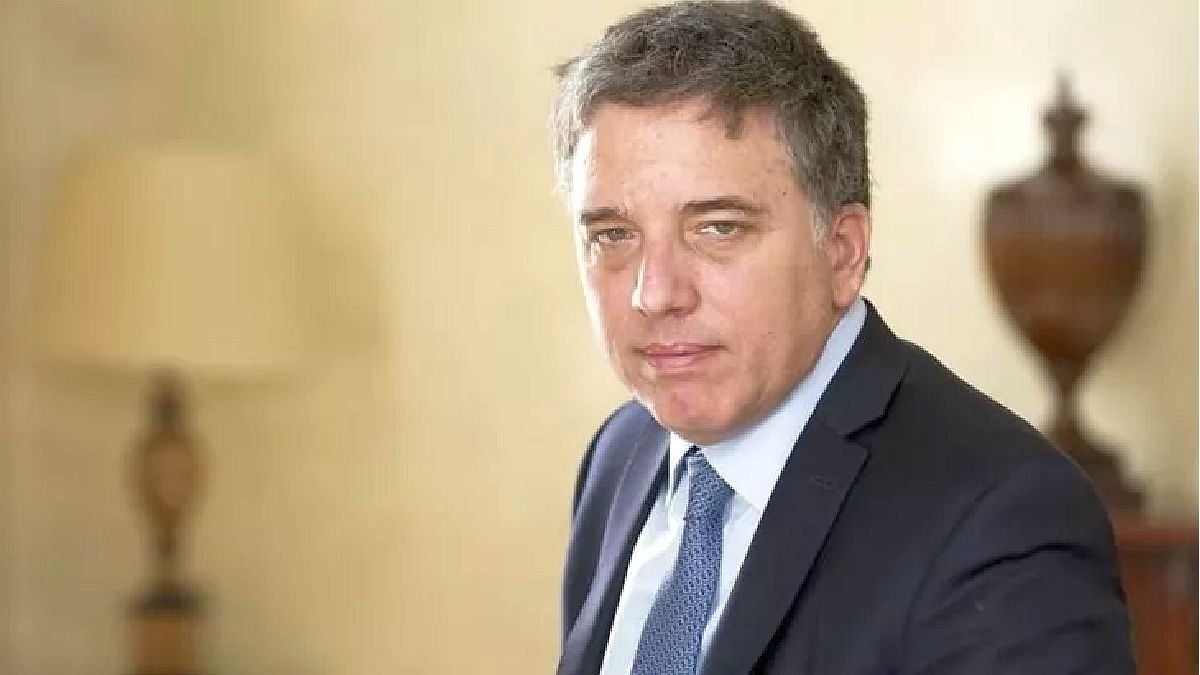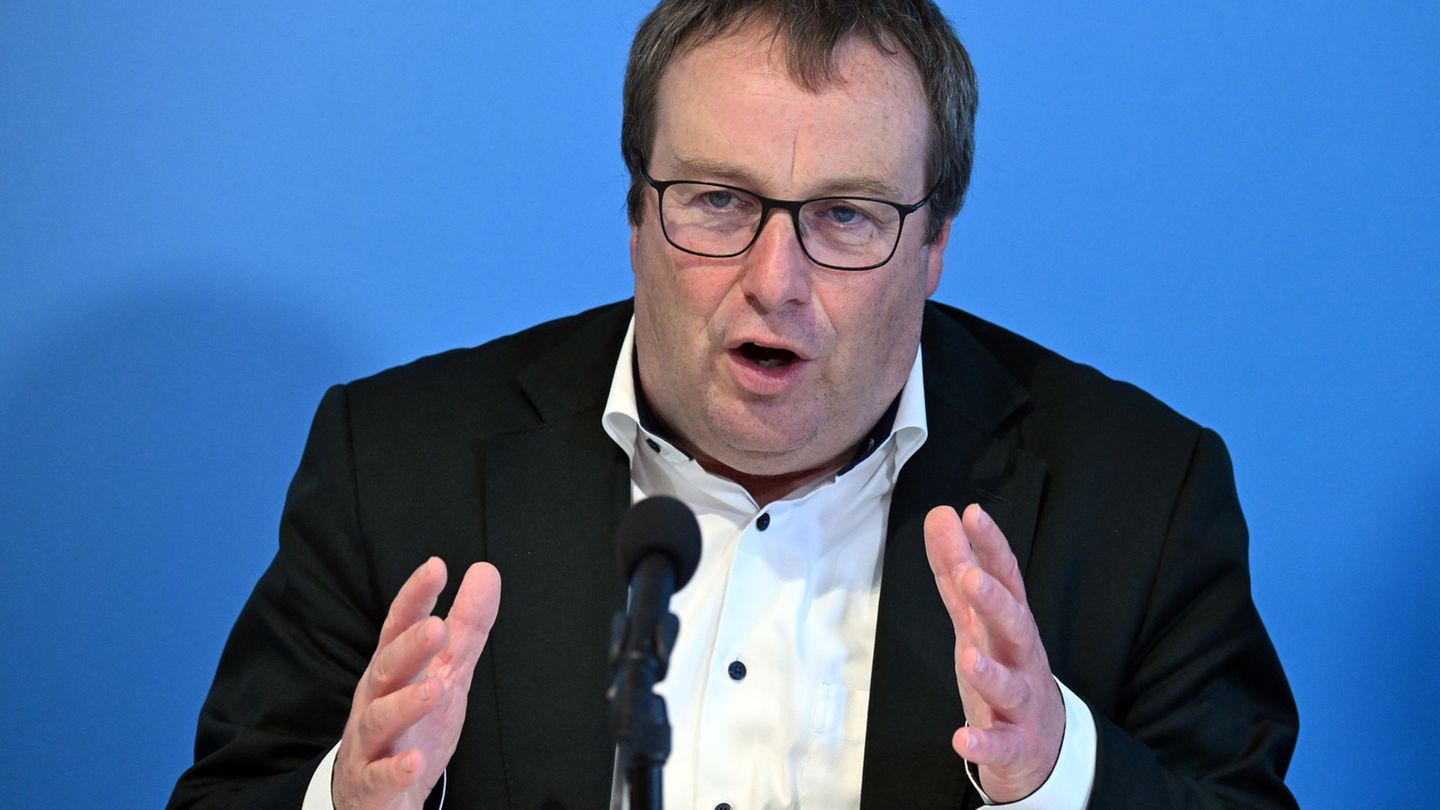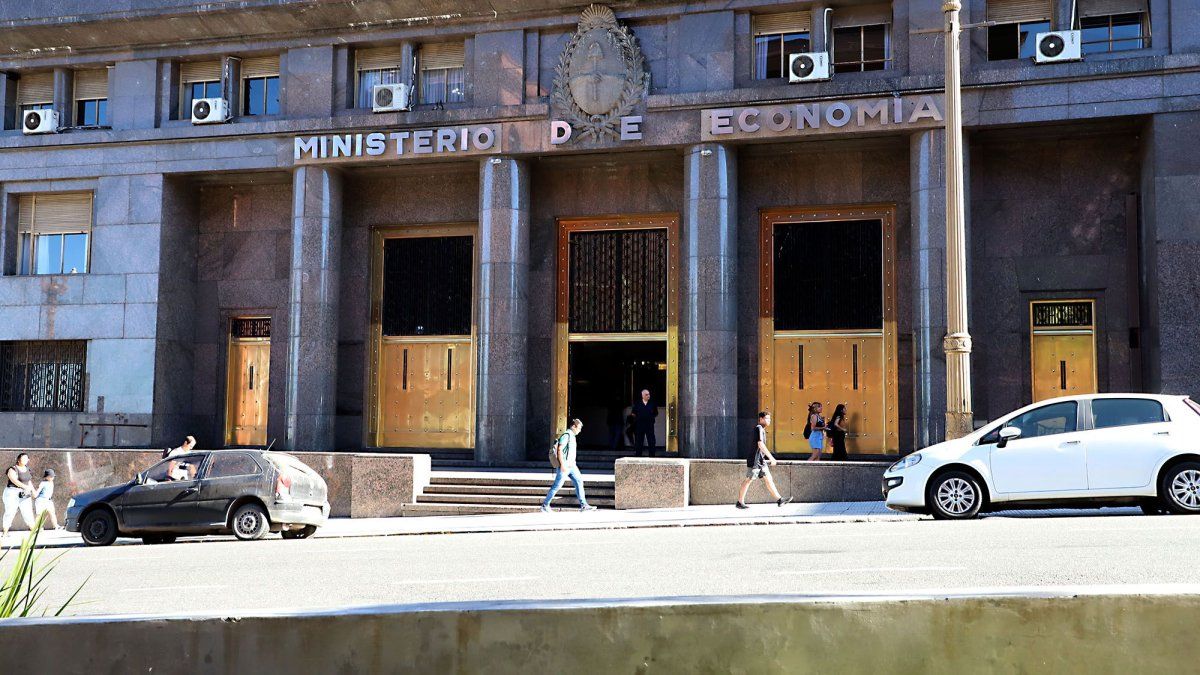“Today Argentina has 10 points of GDP of BCRA debt, which runs at an effective rate of 100% per year, and generates a money supply of 10 points of the product, which makes it impossible for the inflation rate to fall. Without correcting that problem, Argentina is not going to have a lower inflation rate, and each peso that we issue for the quasi-fiscal deficit is equivalent to each peso that we issue to finance the fiscal deficit,” he continued.
On the effect of inflation, he defined: “If we look at poverty, it is surely at levels closer to 40% than 35%, and rising. So you always have to look at the counterfactuals. It is necessary to have a policy that aims to lower inflation in the medium and long term. It doesn’t do me any good to look at next month. That is the typical Kirchnerist view. I avoid a cost next month and accumulate problems that are never solved. If we maintain this policy we will have the poverty that Venezuela has, which is 90%,” sentenced
Asked if he saw an incompatibility between his proposal for a common currency with Brazil and the autonomy of the Central Bankthe former minister pointed out: “They are not exclusive at all, they go hand in hand. It is one of the alternatives that Argentina has to evaluate. Some monetary arrangement that institutionalizes the limits to the BCRA a little more, such as a currency with Brazil, has advantages over , for example, dollarization The correlation between the terms of trade between Argentina and Brazil is a positive correlation close to 0.5 The correlation between the terms of trade between Argentina and the United States is negative, and we are exposed to shocks different,” he said.
“A multilateral or bilateral arrangement with another currency implies a greater limit that puts brakes on politics. It is more difficult to break then the non-financing of the treasury,” he highlighted as an additional benefit of the formation of a common currency. “Those are probably the two advantages: speed and capacity of the Central Bank to resist pressure”.
“Argentina can also travel the path of building a strong, solid currency, with inflation similar to the international one, that implies a lot of fiscal discipline, it implies that politics must really recognize the importance of long-term fiscal balance. We have to understand it: there are no monetary maneuvers that will save us Argentines from the inflationary problem if we do not solve the macroeconomic problem, what is a chronic fiscal deficit.
“We are heading towards three-digit inflation, and finally society perceives the cost of fiscal disarrangements. Today there is a very high stability demandwhich It does not mean that when one lowers the measures that must be taken to solve the fiscal disorder, society agrees,” remarked on the inflationary scenario and highlighted that “You have to do a very clear teaching task with what you have to do to eliminate inflation”. He also stressed that this may have a cost in the short term: “You have to put everything in the balance, explain it to society and I think that today it is much more mature to face the fiscal problem than in 2015 when the symptoms were less visible” .
Dujovne denied working on an economic plan for Macri
“I belong to the political space and I speak with the referents of our space, I am not preparing a specific economic program,” defined the former official. He also refused to choose a Together for Change candidate to support: “It’s very early“.
However, he insisted that the recipe applied during his administration was correct: “Argentina should have corrected the deficit faster, without a doubt that the deficit should have been corrected faster. In 2017 we already lowered public spending to two points of GDP, so when my administration began we began an accelerated correction of the fiscal situation, but I think that the administration should have started from day one prioritizing the fiscal objective over other objectives that were alsothat if you look at it one by one individually, they were very valuable, but I think the objective of a very rapid reduction in the deficit had to be put forward to avoid being exposed to a shock like the one we had in 2018.”
Along these lines, he defended his decision to resort to IMF to take the largest credit that the body has granted and qualified the measure as correct: “It is what was allowing Argentina to go through that drought financing transitory without going into default, without having to put a trap. We already see what the costs of the stocks are and the costs of the mega money issue, because the alternative that Argentina had at that time was to print money.”
“The Fund has had problems not only with Argentina but with many other countries in its latest programs, and unfortunately also has lost credibility“, he highlighted about the organization and added: “Today the Fund’s seal does not generate the same in terms of credibility for the country that subscribes to the program, which is what happened a few years ago. In terms of allowing countries to return to the voluntary debt market, IMF programs have been far poorer than they were several years ago.”
“The Fund has had serious diagnostic problems in terms of the resurgence of inflation in the world. They failed to realize that the fiscal and monetary mega-expansions during the pandemic were going to have the inflationary effect that they had throughout the world. In the case of Argentina, I believe that what the Fund recognizes is that it is very difficult for sound macroeconomic policies today to have ownership by the authorities. Recognizing that the Argentina today does not have that will to move towards a program that is very robust, the Fund decides to be flexible. Now, we have to ask ourselves in a program in which the goals are being met, inflation is 100% per year, is there a design problem in the program, not just the laxity in meeting the goals.”
Regarding Argentina’s compliance with the commitments, he highlighted: “It is clear that Argentina is complying formally, although not in spirit. The monetary issue no longer finances the Treasury with transitory advances, but the Central Bank buys a trillion pesos of bonds. It is issuing money, and that is not computed.”
Source: Ambito
David William is a talented author who has made a name for himself in the world of writing. He is a professional author who writes on a wide range of topics, from general interest to opinion news. David is currently working as a writer at 24 hours worlds where he brings his unique perspective and in-depth research to his articles, making them both informative and engaging.




